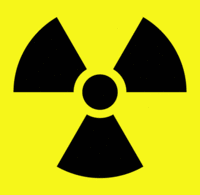Nuclear-Free Pacific could become Less Free, More Nuke

Throughout most of the nuclear superpower Mexican standoff (sawed-off shotguns across a poker table) known as the Cold War, the world's first member of the Atomic Bomb Club -- and the only member to have used atomic bombs in warfare against other human beings -- was allowed to let its Navy ships come and go into New Zealand waters and ports without telling the New Zealand government whether the U.S. ships were carrying nuclear weapons.
That ended in 1985, when the New Zealand government demanded to know in advance if the US Navy was bringing nuclear weapons into New Zealand territy. The US refused to provide that information. New Zealand barred its ports and territorial waters to US warships. The three-nation defense treaty between the USA, New Zealand and Australia, ANZUS, ended. Diplomatic ties between NZ and the USA have been strained ever since.
New Zealand's action was part of a broader grassroots political initiative known as the movement for a Nuclear-Free Pacific -- a region of the western Pacific Ocean whose nations have chosen to ban nuclear weapons possession or testing, and de-emphasize or phase out nuclear power.
France still uses its colonial possessions in the Pacific to test its nuclear weapons, which outrages the people and governments of the region. A spy team of the French Secret Service bombed a Greenpeace ship berthed in New Zealand, killing a Greenpeace volunteer; the French government agents were caught, tried and convicted.
Some independent Third-World Pacific island nations are trying to make money by offering to become nuclear waste dumps for nuke-advanced industrial nations.
With this upcoming NZ election, all that could change back after twenty years. The US could once again be free to "smuggle" nuclear weapons into New Zealand territorial waters without New Zealand's government or people knowing it. New Zealand wouldn't join The Club. It would just once again host visiting Club events.
========================
The Associated Press
Friday 16 September 2005
U.S. Has Interest
in New Zealand Elections
New Zealand Elections
Set for Saturday;
Opposition Win Could Lead
to Better Relations With U.S.
By MIKE CORDER Associated Press Writer
WELLINGTON, New Zealand -- New Zealand's relationship with the United States could enter a new era of cooperation if the country's opposition National Party wins parliamentary elections Saturday.
Party leader Don Brash, a 64-year-old economist and former central bank governor, has said he would be prepared to dismantle New Zealand's 20-year-old nuclear-free laws to help prepare the way for a free trade deal with Washington although he first would seek approval for the move in a referendum.
Nuclear laws have strained relations between Washington and Wellington since they were enacted in 1985, leading to New Zealand's being frozen out of a defense treaty with the United States and Australia.
Two-term Labour Prime Minister Helen Clark says she is appalled at the prospect of Brash scrapping them.
"We can take pride -- in being nuclear free and in having the strength and independence not to send our young people off to fight in unjust wars," Clark said in a televised address to the nation Friday night.
Her comments were a clear reference to her vocal opposition to President Bush's decision to invade Iraq.
Clark, who spent Friday rushing to campaign rallies at malls and factories in New Zealand's largest city, Auckland, refused to send troops to participate in the invasion without U.N. approval but later dispatched army engineers to help rebuild the shattered country and Afghanistan.
Political analysts and pollsters who have charted erratic swings in support for both Labour and National consider the vote for parliament's 120 seats too close to call.
After Saturday's vote, both Clark and Brash likely will try to negotiate with minor parties to stitch together a workable coalition and that process could take weeks.
Since coming to power in 1999, Clark has presided over a booming economy helped by strong prices for agricultural exports and a surge in tourism sparked by the blockbuster "Lord of the Rings" movie trilogy that showcased the country's spectacular scenery.
Unemployment is at a 30-year low of 3.7 percent, and the budget has grown each year Clark has been in office. Her message Friday to the estimated 12 percent of the country's 2.83 million voters who were still undecided: Don't change a good thing.
- 30 -


0 Comments:
Post a Comment
<< Home